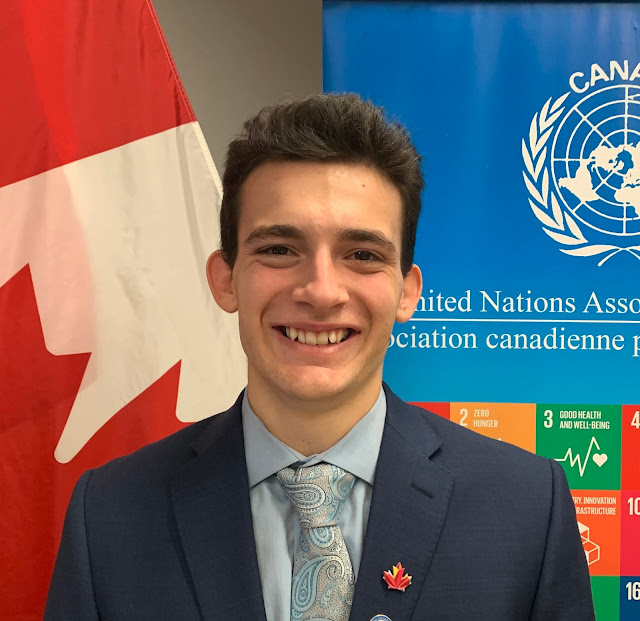Kindness in Colombia - My Internship Experience
Written by Anja Cengic
Last year I travelled to Colombia to backpack around the country for two months before I continued south towards Ecuador. Before I left, I heard the usual ‘it’s dangerous’, ‘why would you want to go there’, and ‘that is not a country for tourists’ from anyone who heard about my trip. None of these warnings prevented me from travelling there, and I am beyond grateful that they didn’t. Experiencing the beauty of Colombia was one of the reasons I wanted to come back here again to do an IDDIP internship, and I was placed in the UN Development Programme in Bogotá in their Poverty and Sustainable Development Unit.
 Colombia
is most widely known for issues arising due to armed conflict, but there is so much more to this country than that. It
is a country full of contradictions: of massive cities and quiet villages, of
kindness in most people and violence in some, of high mountains and low-laying
coasts, and of modernity and tradition. What has genuinely surprised me during
my internship here is how extremely kind people are, and how, although everyone is
affected by conflict, people have found a way to continue being open and warm.
This was something I was not able to fully experience as a visitor just passing
through for a short time.
Colombia
is most widely known for issues arising due to armed conflict, but there is so much more to this country than that. It
is a country full of contradictions: of massive cities and quiet villages, of
kindness in most people and violence in some, of high mountains and low-laying
coasts, and of modernity and tradition. What has genuinely surprised me during
my internship here is how extremely kind people are, and how, although everyone is
affected by conflict, people have found a way to continue being open and warm.
This was something I was not able to fully experience as a visitor just passing
through for a short time.
I
once had a foreign friend in Canada tell me that he thought Canadians were
‘nice, but not kind’, in that we did not go beyond what was expected of us
towards others. We asked how you were doing, and said, ‘See you Monday’, but
rarely did we extend invitations to perhaps do something on the weekend. I
thought back shamefully on the many times I had worked with foreigners, who I
assumed had their own lives outside of work and did not need me to entertain
them. Being here, I have found that Colombians are above and beyond both nice
and kind, without so much as a second thought. I was immediately invited into their homes, to their events, and into their lives. There has been no hesitation including me in
the every day happenings of my fellow rolos (those from
Bogotá), and this has made all the difference.
They
have been patient when I faltered in Spanish, not understanding what I meant or
kindly correcting me when I make mistakes (such as the time I thought I was asked to ‘un-FARC’ (des-FARC-ar) a document so I deleted/re-worded
all mentions of the former guerilla group, when actually I was asked to write
about embezzlement (‘des-falcar’)). They have been giving, such as the time my
Canadian phone was permanently blocked (a new law in Colombia I was unaware
of), lending me theirs to use during my time here instead. They have been
inclusive, asking me to participate in the Day of Love and Friendship custom here in
Colombia, where we are to somehow leave gifts on the desk of a colleague for
two weeks without them finding out who we are. They have been co-writers of my
thesis, tour guides of
this wonderful city, explained many things I found complicated or bureaucratic, and so much more.
I do not know if anyone will remember how much I helped them when they came to
Canada, but I know that I will remember how much I was helped here. This is
something I know I will take back with me, and if I manage to make anybody feel
as much at home in a foreign country as Colombians have made me feel here, I will
have succeeded. Travelling through a country in the company of other tourists,
and staying in one place with local friends, are two very different
things. I am happy to have been given the opportunity to be here a second time,
to understand further what it means to be Colombian, and to continue working
towards my goal of a career with the United Nations.
There
are few words that can explain my experience here so far, but Colombia said it
pretty well: The only risk is wanting to stay.


